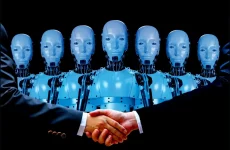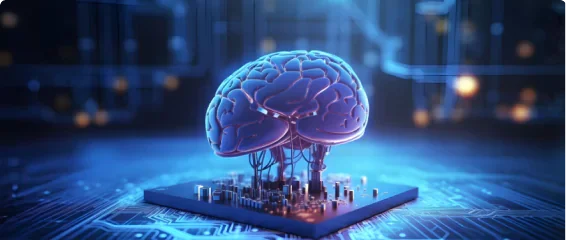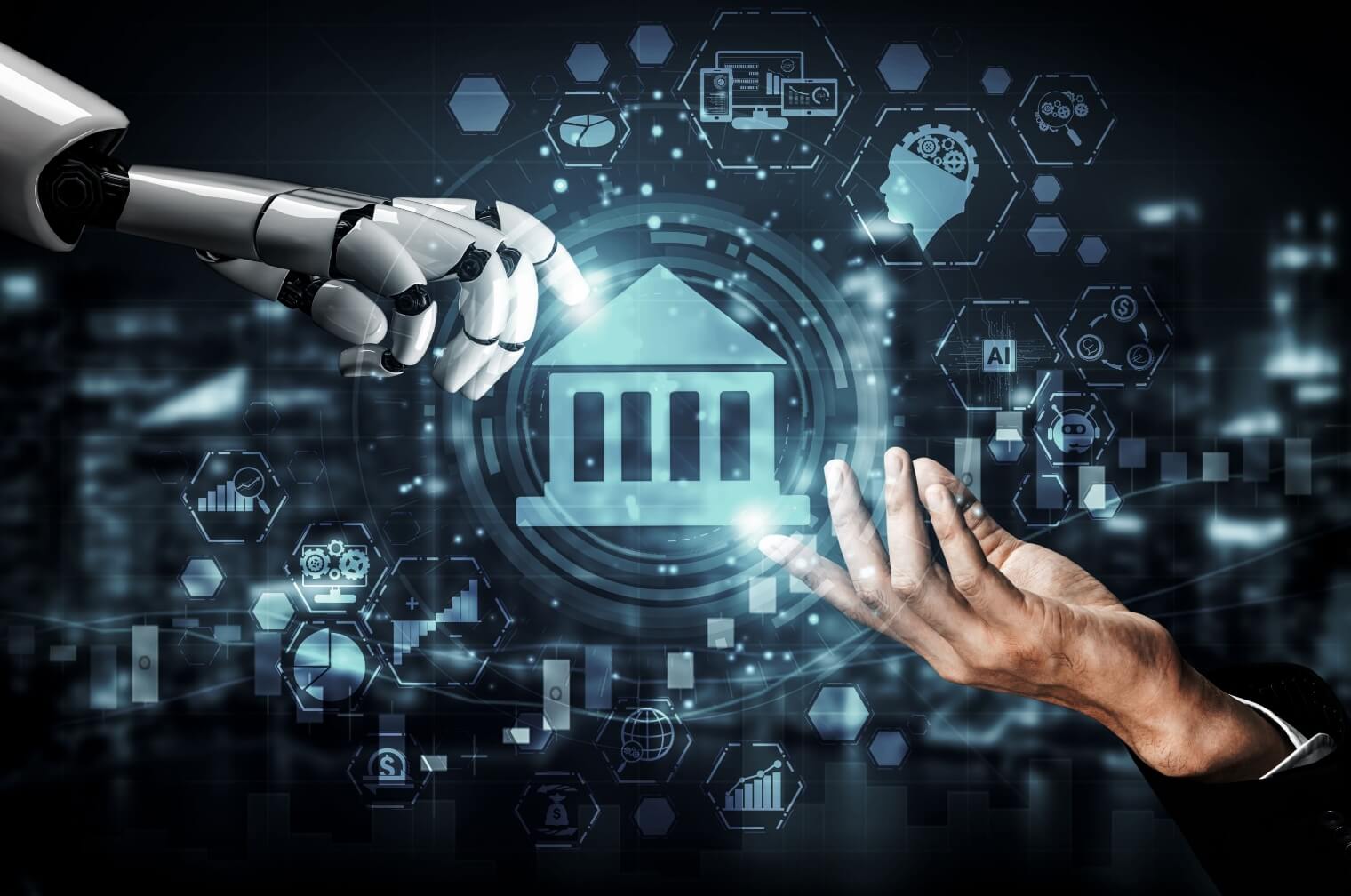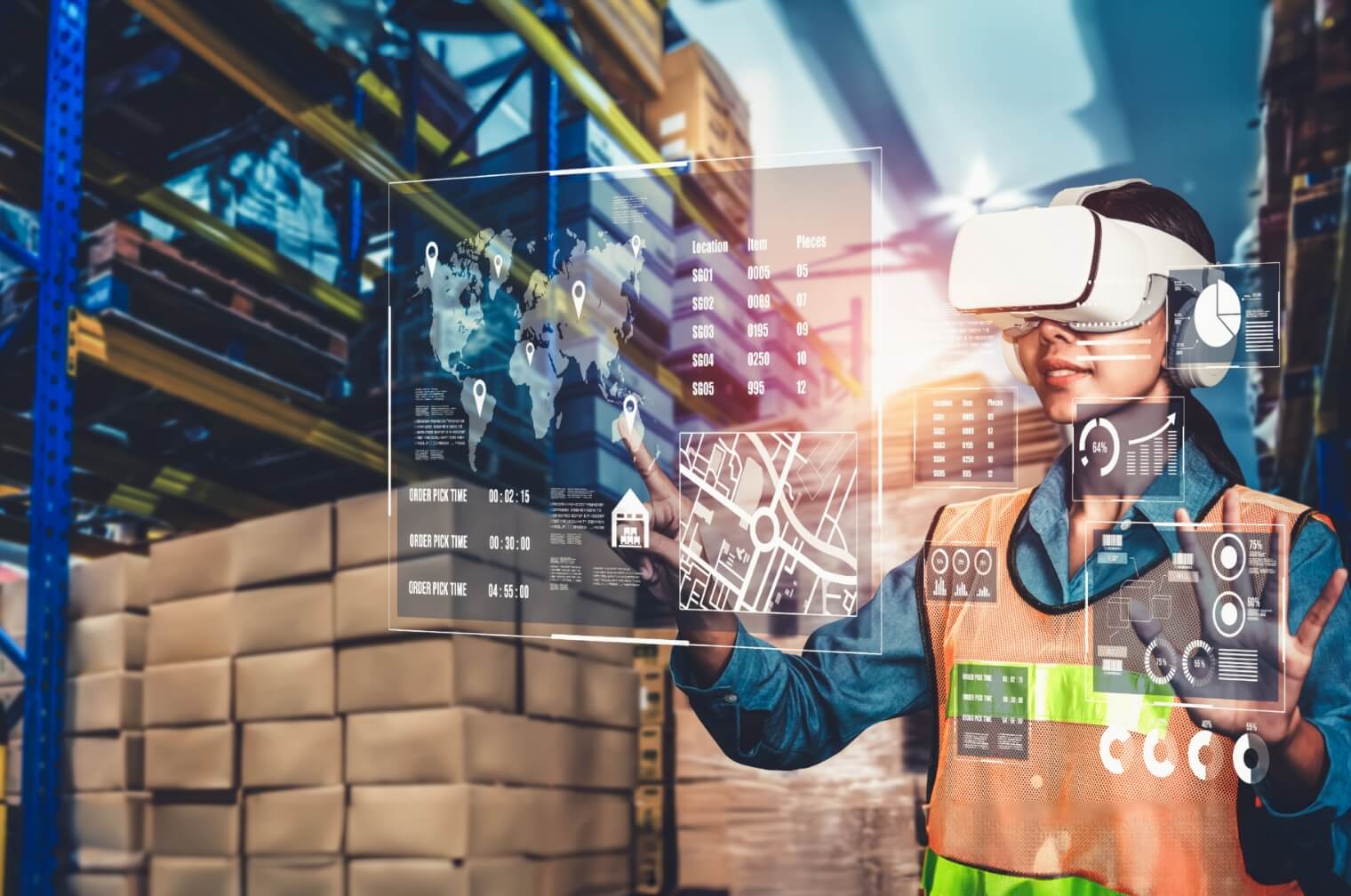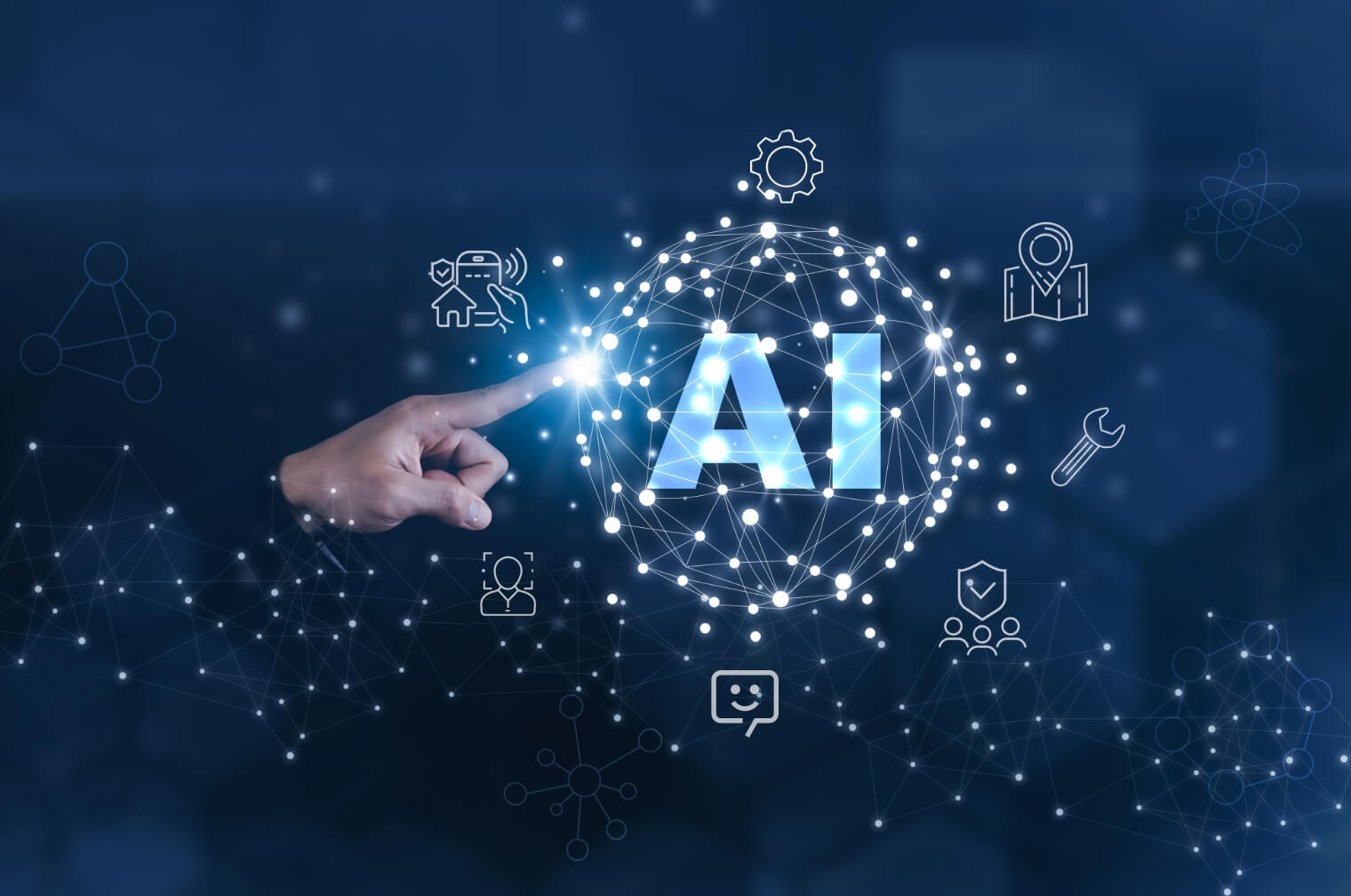In the ever-evolving world of modern manufacturing, Industry 4.0 is a transformative approach that aims to revolutionize how we make, distribute, and use goods. Also referred to as the Fourth Industrial Revolution, it represents the coming together of advanced digital technologies to create smart factories and automated systems that work together seamlessly. And using AI in manufacturing is at the heart of this revolution.
In this blog, we will delve deep into the multifaceted role of Artificial intelligence technologies in manufacturing, exploring how they serve as the driving force behind the future of Industry 4.0 and unlock a realm of untapped possibilities.
Role of AI in manufacturing
The integration of AI into manufacturing processes has far-reaching implications for the industry’s future. Its predictive capabilities, process optimization, and collaborative robotics are reshaping traditional practices, propelling manufacturing into a new era of efficiency and precision.
In the context of Industry 4.0, AI serves as the catalyst for achieving the revolution’s objectives of enhanced productivity, increased flexibility, and more sustainable manufacturing practices. As the technological landscape continues to evolve, AI’s role in manufacturing is set to expand, unlocking a world of untapped possibilities and leading the way toward a smarter and more connected industrial future.
How AI solutions are transforming the realm of manufacturing
In the last decade, AI technology has emerged as a prominent term in the manufacturing industry, and it has gained further momentum with the recent release of the GPT-4 App and other notable AI technologies. Companies are increasingly investing in AI in manufacturing to harness the power of predictive maintenance, minimizing costly machine downtimes.
AI-based solutions are a powerful tool to overcome various internal challenges faced by the industry, including expertise shortages, complex decision-making, integration issues, and information overload.
By incorporating AI technologies in manufacturing plants, businesses can undergo a complete transformation of their operations. Let’s take a closer look at how AI is playing a crucial role in helping the manufacturing sector achieve its goals.
AI-powered data analysis: real-time decision making
AI-enabled data forecast in manufacturing is a game-changer. It empowers manufacturers with real-time insights, enabling them to make informed decisions that optimize production processes and boost profitability. By harnessing the potential of AI, manufacturers can drive their operations forward into a more efficient, agile, and competitive future.
Predictive maintenance: anticipating equipment failure
AI-powered predictive maintenance revolutionizes traditional maintenance practices by utilizing real-time data from connected equipment to predict maintenance needs. Manufacturers can identify potential equipment failures in advance, avoiding costly downtime and reducing maintenance expenses.
Quality control: enhancing product standards
Artificial intelligence technologies, such as computer vision and machine learning algorithms, have revolutionized the quality control process. By leveraging computer vision, AI systems can quickly and accurately identify defects in products, ensuring compliance with stringent quality standards.
Demand forecasting: meeting customer needs
Accurate demand forecasting is crucial for manufacturers to optimize production, minimize inventory costs, and meet customer expectations. AI algorithms can analyze historical data, market trends, and customer behavior to predict future demand accurately.
By leveraging these insights, manufacturers can adjust production schedules, optimize inventory levels, and ensure that the right products are available when customers need them. AI-powered demand forecasting also allows manufacturers to respond quickly to changing market conditions.
Process optimization: streamlining manufacturing operations
By analyzing data from various sources, including sensors, IoT devices, and production equipment, AI algorithms can identify bottlenecks, optimize workflows, and streamline operations. This leads to reduced cycle times, improved resource utilization, and enhanced overall performance. Manufacturers can leverage AI solutions to automate complex tasks, freeing up human workers to focus on more strategic and value-added activities.
Supply chain optimization: transforming manufacturing efficiency
In manufacturing, a compelling example of AI implementation lies in supply chain management. Dealing with millions of orders, purchases, materials, and ingredients manually consumes valuable time and resources. As a result, many companies are turning to AI companies to enhance their supply chain processes. The impact of AI-driven supply chain optimization is significant, leading to reduced costs, increased productivity, and improved customer satisfaction.
Autonomous vehicles: revolutionizing manufacturing logistics
Another exciting application of AI in manufacturing is the use of autonomous vehicles. Self-driving cars and trucks, equipped with AI algorithms and sensors, can automate and optimize logistics processes in manufacturing facilities. These autonomous vehicles can navigate production floors, transport materials, and optimize delivery routes, leading to increased efficiency and cost savings. By leveraging AI, manufacturers can achieve round-the-clock operations, minimize transportation costs, and improve delivery speed and accuracy.
Autonomous systems and robotics in smart factories
AI is powering the rise of collaborative robots, often known as Cobots, which play a crucial role in supporting human workers. Unlike traditional automated robots limited to repetitive tasks, they are designed to learn and adapt to various tasks.
Another area where these robots shine is in large warehouses, where they assist in locating and retrieving items efficiently. While Cobots take care of physically demanding and repetitive tasks, human workers can concentrate on complex decision-making and problem-solving.
Sustainable manufacturing
AI-based applications can help predict future energy consumption and emissions, even for upcoming shifts. Moreover, AI optimizes production processes by determining the most efficient process parameters and production sequences, further contributing to emission reduction efforts.
In the context of sustainable processes, our Co4 common platform stands as an exemplary solution. The platform predicts future energy consumption and emissions, even for upcoming shifts, enabling proactive measures for sustainability.
This futuristic solution has access to a range of common services such as electric vehicle charging, water management, energy monitoring, and carbon emissions tracking. It also includes a range of features to help users manage their energy usage and generation and ensure that everything is running smoothly.
The impact of AI in generative designs
AI has emerged as a game-changing technology in the field of generative design. By leveraging machine learning algorithms, generative design software can rapidly generate and evaluate thousands of design options, allowing manufacturers to optimize for multiple objectives such as cost, performance, and manufacturability. Furthermore, AI can also help identify and mitigate potential design flaws before production, saving valuable time and resources.
AI-powered manufacturing – the next evolution has begun!
The future of AI in manufacturing sector is incredibly promising. Companies worldwide are adopting intelligent manufacturing solutions to enhance product quality and competitiveness in the global market. As the role of AI in manufacturing continues to evolve, we can expect to see even greater improvements in efficiency, productivity, and quality across the entire industry.
Real-world companies are increasingly using AI-based solutions to revolutionize manufacturing processes. For example, General Electric (GE) has implemented an AI-powered system that analyzes data from sensors on its gas turbines to identify potential issues before they become major problems, reducing unscheduled downtime by up to 5%.
The dawn of AI evolution has arrived, and it’s just the beginning of a vast world of untapped opportunities. In manufacturing, the possibilities are limitless, and we’re only scratching the surface of what AI can truly achieve. Get ready to witness the transformation as AI reshapes the future of manufacturing like never before.
Conclusion
The fourth industrial revolution, Industry 4.0, has ushered in a new era of advanced manufacturing, where modern-day digital technologies converge to create smart factories and automated systems. At the heart of this transformative approach lies the role of AI in manufacturing, acting as a powerful tool that drives efficiency, productivity, and innovation in the manufacturing industries.
At ViitorCloud, we stand at the forefront of AI application development, driving innovation and transformation in the manufacturing industry. Our expertise in leveraging AI-powered solutions helps businesses optimize their operations, increase efficiency, and achieve a competitive edge. Embrace the power of AI with Viitorcloud, and let’s shape the future of manufacturing together.
Frequently asked questions
Industry 4.0 refers to the integration of advanced digital technologies to create smart factories and automated systems. AI plays a central role in this transformation, driving efficiency, quality, and innovation in manufacturing processes.
AI, through technologies like computer vision and machine learning, revolutionizes quality control by quickly identifying defects in products. This helps reduce waste and enhance production efficiency.
Companies can do so by identifying critical pain points, integrating AI technologies like predictive maintenance and quality control, and gradually scaling up AI’s implementation.
AI technology is extensively used in manufacturing to automate tasks, improve quality, and reduce costs. It can also be used to personalize products and services for customers.
Yes, AI-powered predictive maintenance utilizes real-time data to anticipate equipment failures and prevent costly downtime, leading to improved operational efficiency.
AI-driven supply chain optimization leads to reduced costs, increased productivity, and improved customer satisfaction.
Collaborative robots, or Cobots, powered by AI, work alongside human workers, handling tasks like heavy lifting and repetitive activities, enhancing efficiency, safety, and productivity in manufacturing factories.
